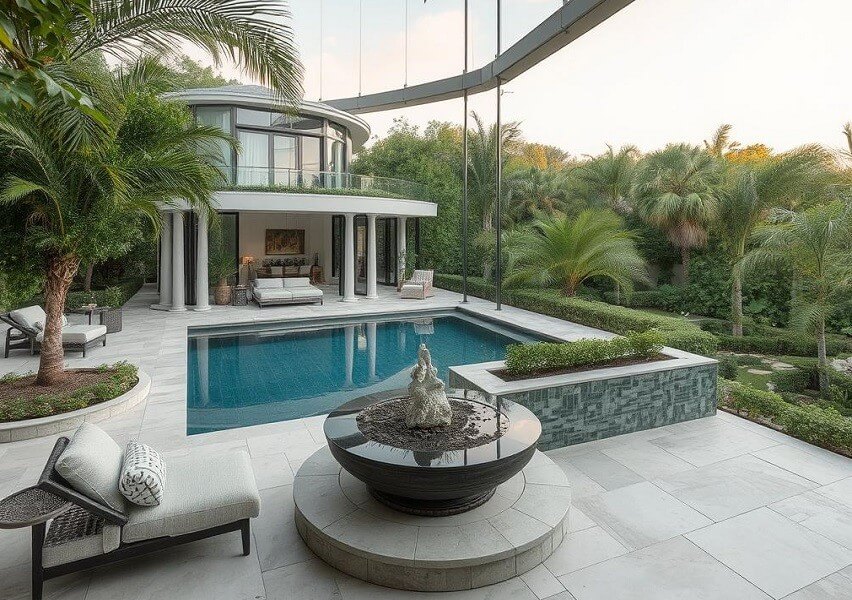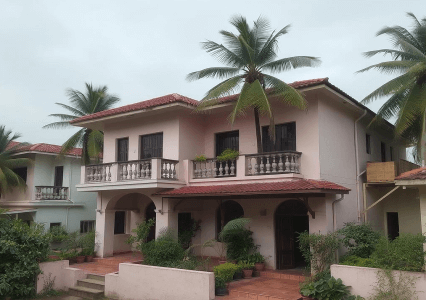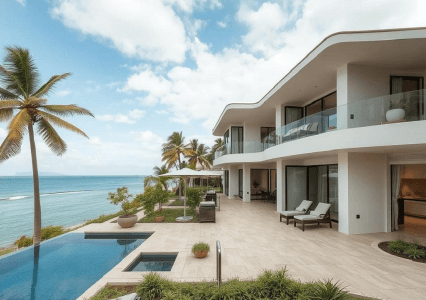
Luxurious living is a state of mind and the very ethos of luxury is in offering more than what is needed. Luxury encompasses exclusivity, craftsmanship and owning a luxurious product denotes status symbol.
Luxury real estate in India has seen significant evolution in recent years, driven by changing consumer preferences, economic growth, and innovations in design and amenities.
Here are some key trends that are currently shaping the high-end property markets across India:
SUSTAINABLE AND GREEN LIVING
- Eco-friendly Developments: High-net-worth individuals (HNIs) and ultra-HNIs are increasingly conscious of sustainability. Luxury real estate is now incorporating green features like solar panels, rainwater harvesting systems, and energy-efficient designs.
- LEED and IGBC Certifications: Properties that meet international green building standards are in high demand. Developers are focusing on getting certifications from bodies like LEED (Leadership in Energy and Environmental Design) and IGBC (Indian Green Building Council).
INTEGRATED SMART HOME TECHNOLOGY
- Home Automation: Smart homes with integrated technologies such as AI-enabled lighting, smart security systems, and remote-controlled appliances are now considered essential in the luxury real estate market.
- Voice-activated Control: Tech-savvy buyers expect voice-activated control systems like Amazon Alexa or Google Assistant to manage everything from lighting to entertainment.
- IoT Solutions: Internet of Things (IoT) devices for better connectivity and security, including smart locks, climate control, and surveillance systems, are now standard offerings.
PRIVATE AND EXCLUSIVE AMENITIES
- Concierge and Butler Services: High-end properties now offer personal services such as 24/7 concierge, butler, and valet services, providing an experience akin to living in a five-star hotel.
- Private Pools, Gyms, and Spas: Luxury homebuyers expect access to private pools, gyms, and wellness spaces. Spas, yoga studios, and fitness centers within the property are considered necessities, not luxuries.
- Exclusive Clubhouses: Gated communities offer exclusive clubhouses equipped with lounges, dining areas, game rooms, and more, catering to the social needs of residents.
PRIME LOCATIONS WITH GREAT CONNECTIVITY
- Urban Hotspots: Cities like Mumbai, Delhi NCR, Bangalore, and Hyderabad are key luxury real estate markets. In these cities, properties in well-connected, premium locations (e.g., South Mumbai, Lutyens’ Delhi, and Indiranagar in Bangalore) continue to command high prices.
- Proximity to Key Amenities: Affluent buyers seek properties close to international schools, luxury malls, business districts, and airports. Proximity to prestigious clubs, dining options, and entertainment venues adds to the appeal.
BRANDED RESIDENCES
- Partnerships with Global Luxury Brands: Branded residences, often developed in collaboration with globally renowned brands like Four Seasons, Ritz-Carlton, and Trump, have become popular. These developments offer high-end hospitality services, bespoke design, and a sense of exclusivity.
- Curated Interiors: Developers are collaborating with international designers and architects to create signature homes with customized interiors that reflect a refined lifestyle.
EXPANSIVE OPEN SPACES
- Large, Private Outdoor Areas: With a growing demand for privacy, luxury buyers are looking for properties with large terraces, gardens, and balconies. Spacious lawns, rooftop gardens, and outdoor entertainment areas are becoming must-haves.
- Low-Density Developments: Buyers prefer properties in low-density areas with fewer homes per acre, offering more green space and privacy. This trend has grown particularly after the pandemic, as people prioritize wellness and outdoor living.
WELLNESS-FOCUSED DEVELOPMENTS
- Health and Wellness Amenities: Properties with wellness-focused amenities such as meditation rooms, organic food gardens, wellness centers, and spa-like facilities are in high demand.
- Holistic Living Spaces: Luxury developments are incorporating holistic wellness features like aromatherapy zones, therapeutic pools, and wellness kitchens that focus on healthy living.
WORK-FROM-HOME (WFH) INFRASTRUCTURE
- Home Offices: As remote working has gained popularity, luxury homes now feature fully equipped home offices with high-speed internet, video conferencing rooms, and soundproof spaces.
- Multi-functional Spaces: Buyers are seeking homes with flexible spaces that can be converted into work areas, study rooms, or creative studios to accommodate the new work-from-home culture.
SECOND HOMES AND HOLIDAY VILLAS
- Vacation Homes in Scenic Locations: Wealthy buyers are investing in second homes or holiday villas in scenic locations like Goa, the hills of Uttarakhand and Himachal Pradesh, or coastal Kerala. These homes serve as retreats and are often equipped with luxury amenities and privacy.
- Coastal and Hill Station Properties: With a growing preference for wellness and retreat lifestyles, properties in hill stations and along the coastlines are gaining traction.
CUSTOM-BUILT HOMES
- Personalized Architecture and Design: Many luxury buyers are now opting for custom-built homes designed according to their personal tastes and lifestyle preferences. This includes bespoke architecture, tailored interiors, and one-of-a-kind features.
- Vastu-Compliant Homes: For many Indian buyers, adherence to Vastu Shastra (traditional Indian architecture principles) is essential. Developers often offer homes designed according to these principles for positive energy and prosperity.
RISE IN DEMAND FOR GATED COMMUNITIES
- Security and Privacy: Gated communities are highly sought after due to their enhanced security, privacy, and exclusivity. These communities offer secure environments, which is a top priority for luxury buyers.
- Community Living with High-End Facilities: Along with privacy, such communities offer a range of shared amenities like clubhouses, golf courses, and landscaped gardens, contributing to a holistic lifestyle.
Conclusion: India's luxury real estate market is thriving, with affluent buyers seeking properties that offer more than just opulence—they demand homes that align with their values, lifestyles, and evolving expectations. Whether it's sustainability, wellness, or smart technology, the trends driving this market reflect a shift towards a more holistic, experiential, and future-focused approach to luxury living.


